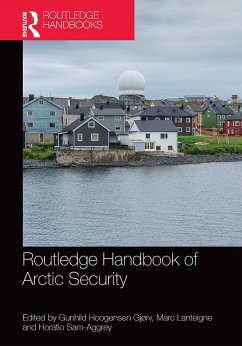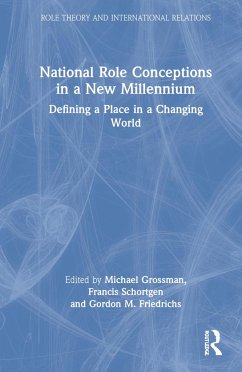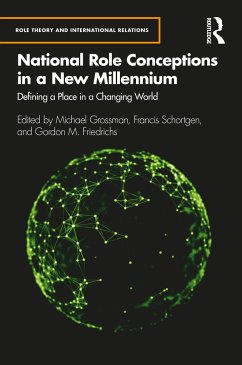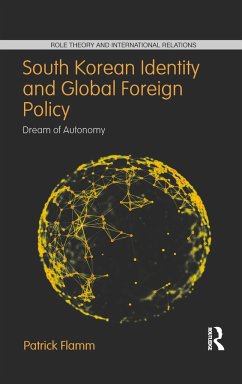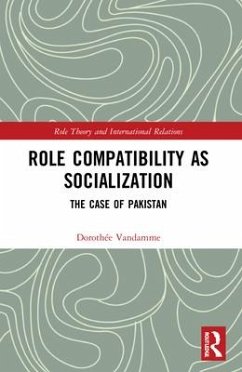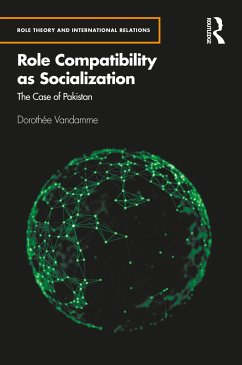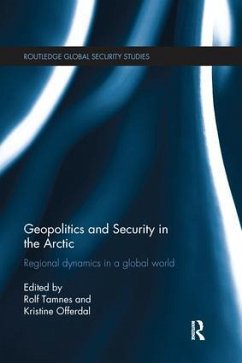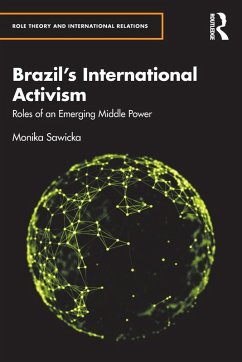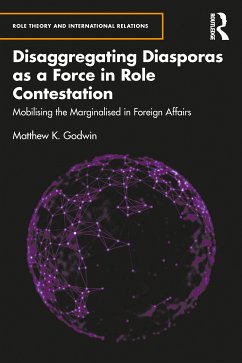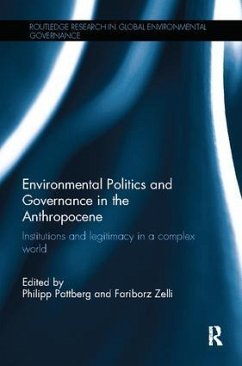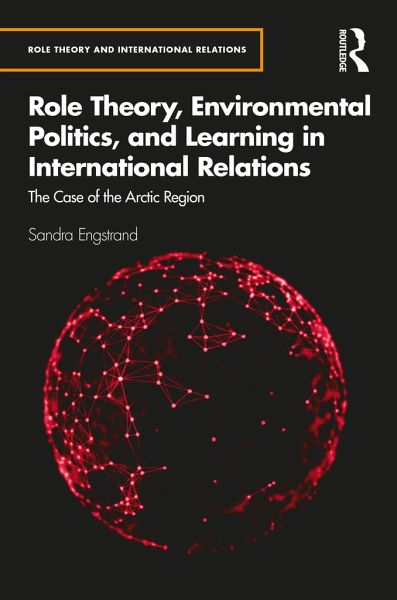
Role Theory, Environmental Politics, and Learning in International Relations
The Case of the Arctic Region
Versandkostenfrei!
Versandfertig in 6-10 Tagen
45,99 €
inkl. MwSt.
Weitere Ausgaben:

PAYBACK Punkte
23 °P sammeln!
In this book, Sandra Engstrand uses role theory to study learning processes in environmental policy negotiations in the Arctic Council.Owing to rapid ice-melting in the Arctic region, and more accessible commercial opportunities, there is a greater need for environmental protection. However, large sections of the Arctic fall under state jurisdiction, often causing tensions to arise that prevent any cooperation from achieving fully efficient environmental protection. To enhance our understanding on how states learn about environmental norms, Engstrand examines negotiation processes on environme...
In this book, Sandra Engstrand uses role theory to study learning processes in environmental policy negotiations in the Arctic Council.
Owing to rapid ice-melting in the Arctic region, and more accessible commercial opportunities, there is a greater need for environmental protection. However, large sections of the Arctic fall under state jurisdiction, often causing tensions to arise that prevent any cooperation from achieving fully efficient environmental protection. To enhance our understanding on how states learn about environmental norms, Engstrand examines negotiation processes on environmental protection for the prevention of Arctic marine oil spills and the reduction of short-lived climate pollutants. Through interviews with state representatives and through text analyses of nearly twenty years of meetings between Senior Arctic Officials from each of the eight Arctic states, Engstrand suggests that learning on environmental norms runs firstly through a learning of roles in international relations. She demonstrates how member states develop through self-reflection and by considering the expectation of others, concluding that states' wishes to preserve their social role in a group and to be perceived as Arctic 'cooperators' are drivers for a social education on environmental norms.
A timely and unmatched volume Role Theory, Environmental Politics, and Learning in International Relations will engage students and academic researchers in international relations, environmental governance, and Arctic politics.
Owing to rapid ice-melting in the Arctic region, and more accessible commercial opportunities, there is a greater need for environmental protection. However, large sections of the Arctic fall under state jurisdiction, often causing tensions to arise that prevent any cooperation from achieving fully efficient environmental protection. To enhance our understanding on how states learn about environmental norms, Engstrand examines negotiation processes on environmental protection for the prevention of Arctic marine oil spills and the reduction of short-lived climate pollutants. Through interviews with state representatives and through text analyses of nearly twenty years of meetings between Senior Arctic Officials from each of the eight Arctic states, Engstrand suggests that learning on environmental norms runs firstly through a learning of roles in international relations. She demonstrates how member states develop through self-reflection and by considering the expectation of others, concluding that states' wishes to preserve their social role in a group and to be perceived as Arctic 'cooperators' are drivers for a social education on environmental norms.
A timely and unmatched volume Role Theory, Environmental Politics, and Learning in International Relations will engage students and academic researchers in international relations, environmental governance, and Arctic politics.





